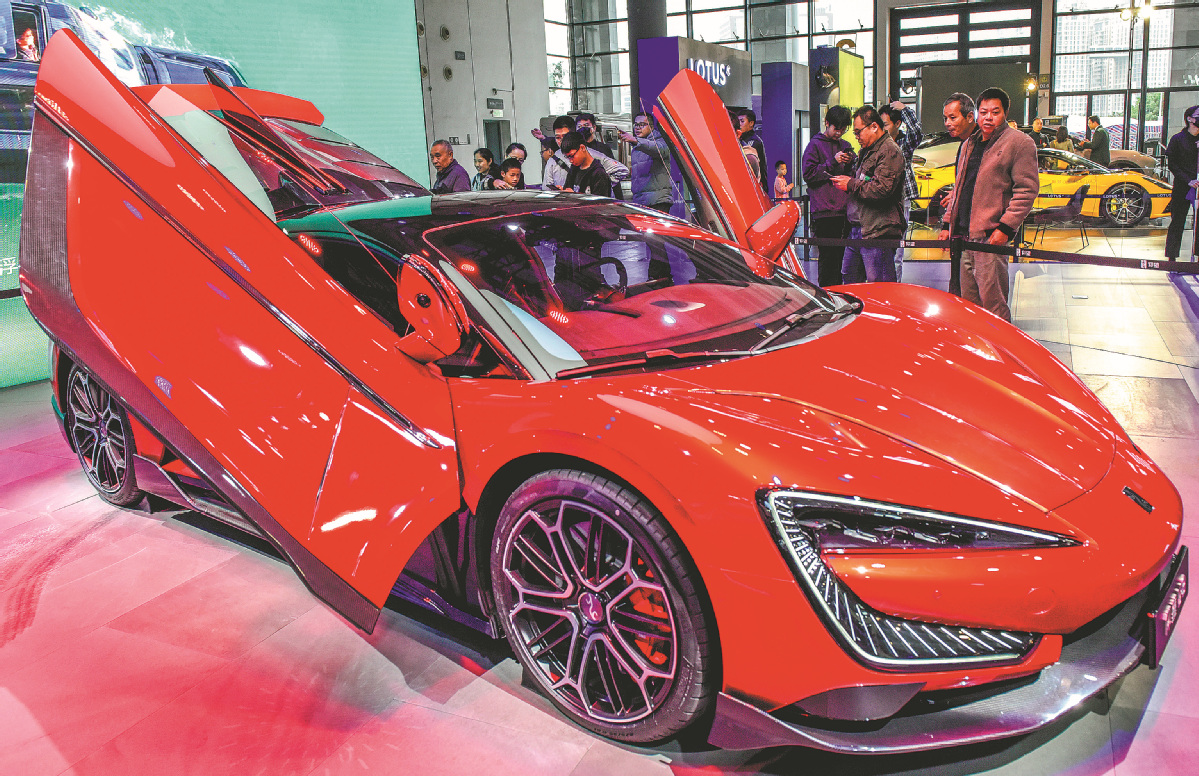Successes and fails of fierce auto sector
Past year delivers spectacular industry highs alongside some painful lows


It is time to summarize China's automobile market as 2024 comes to a close. But it's no easy job.
Like a Chinese hotpot, you will find different, even contrasting, ingredients: record sales, cut-throat competition; bankruptcies, rising investor interest...and they are likely to be apt choices for the new year as well.
But the overall picture is rosy: new energy vehicle sales are expected to hit a record 13 million units in 2024, according to the China Association of Automobile Manufacturers.
They will drive the country's total vehicle deliveries to reach a new high of 31 million units, another leap from a record 30 million units in 2023.
Large car companies such as BYD are benefiting from the demand and the rising pride in local marques.
As the world's largest NEV maker, BYD delivered 3.76 million vehicles in the first 11 months of the year, having exceeded its full-year target of 3.6 million. Yet while the giants are thriving, some smaller companies are struggling, or have even been forced to leave the race.
Su Jun, president of J.D. Power China, said more than a dozen brands have exited the market this year — and this trend may intensify in the next two years.
The latest one is Jidu, which ran out of money in December. Employees were kept unaware of its financial difficulties until the last minute.
After rounds of negotiations, Jidu's parents Baidu and Geely promised to ensure the vehicles' use and after-sales service. In 2024, just 14,000 units were delivered.
Neta has faced layoffs, dealership closures, salary cuts and late payments since October. Parent company Hozon's founder Fang Yunzhou now functions as Neta's CEO following Zhang Yong's exit because of lackluster sales.
Neta has been sued by a public relations company which claimed that it completed contracts of publicity and advertisement but Neta has not made payments.
These struggles have prompted EV buyers to be cautious about smaller brands, not knowing who will be the next one to fall into bankruptcy.
Yet that is good news for large, established brands, including foreign ones.
But the gap in product appeal between international brands and domestic startups has significantly narrowed, decreasing to a single digit on a 1,000-point scale in 2024, according to a J.D. Power survey. The bankruptcies do not mean the capital market has lost confidence in startups.
Avatr, a premium brand of Changan, finished a Series C financing round, raising more than 11 billion yuan ($1.51 billion), in December. It is the largest single example of fundraising in the Chinese auto industry this year. It has initiated preparations for its public listing, aiming for an IPO in 2026. Avatr was followed days later by U Power, a Chinese manufacturer of NEV chassis, which raised several hundred million yuan in Series B funding.
Xuzhou Industrial Development Fund, a first-time investor to U Power, said the company, with its advanced technology and unique market position in skateboard chassis, will quickly expand and capture a sizable share in its segment.
They were joined last week by IM Motor, which raised 9.4 billion yuan. The brand of SAIC Motor said the funds will accelerate its R&D and product launches. It plans to launch four models in 2025.
Analysts said that the next three to five years will be pivotal for smart EVs, with a fierce race in technology, products and delivery, putting many automakers at risk of closure or restructuring if they cannot keep up.
Many brands are confident about their prospects in 2025, although they admit the competition will be fierce.
In late December, Nio launched its Firefly brand. Positioned as a subcompact electric vehicle marque, it aims to compete with models including BMW's MINI and will deliver its first model in April 2025.
The introduction of Firefly completes Nio's three-brand matrix, which includes the flagship Nio marque for premium cars, and Onvo, a new brand targeting the mass market.
Together, these brands are expected to help Nio achieve more than 440,000 vehicle deliveries in 2025, doubling this year's sales, said the company.
Voyah, a startup brand of Dongfeng Motor, expects its sales to reach 200,000 units in 2025, with four models to hit the market. In the first 11 months of this year, it sold 73,000 units.
"How automakers focus on usage scenarios, create consumer-satisfying experiences and meet localized demands will be the core path to achieving profitability and growth," said Su at J.D. Power China.




































